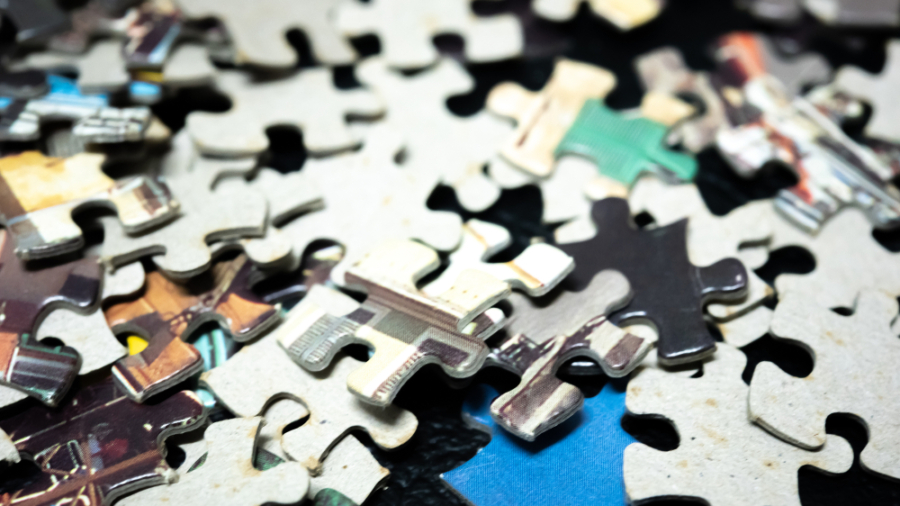The subject of obesity has been contentious for many years, with the debate often centring on whether it is caused by genetics or lifestyle choices. But what if there was another way to look at this issue? What if we could adopt a different approach that would help us reduce our weight and improve our overall health?
Preparing for a Paradigm Shift
Join me in exploring the potential benefits of performing a paradigm shift in our thoughts about obesity and why such an approach might be more effective than relying solely on diet and exercise. Let’s discuss the science behind this concept and some practical tips for implementing it in your own life. By the end, you should better understand how small changes like increasing your chewing standard and sipping your liquids can lead to significant results when managing your weight.
The Traditional Approach to Fighting Obesity
The traditional approach to fighting obesity has typically been focused on two main planks – exercise and a healthy diet. For years, people have tried to follow this advice to achieve the results they desire, with varying degrees of success. Unfortunately, even when individuals do manage to lose weight, the challenges of maintaining their new lifestyle can be considerable. Not only is there the temptation to return to old habits, but also the emotional battle of overcoming the mental demons associated with trying to make a permanent change.
Roger Bannister & Paradigm Shifts
Roger Bannister’s breakthrough with the four-minute mile is a testament to what can happen when we challenge our preconceived limitations. By doing something previously thought impossible, he ushered in a paradigm shift that allowed many others to follow in his footsteps.
Today, running a mile in less than four minutes is no longer an extraordinary achievement but a measure of a runner’s abilities. Thousands of people have done what Bannister has done since and continue to push the envelope even further.
The same could be said for our approach to weight management. Instead of just focusing on exercise and diet, why not challenge our traditional limitations regarding obesity by introducing new methods, such as increasing our chewing standard and sipping liquids?
We need to believe that taking control of our health and weight is possible, and with the right mindset, skills, and strategies, we can make it happen. We need to challenge our limiting beliefs and trust in ourselves to implement the necessary changes to achieve our goals. By shifting our paradigm, we can empower ourselves to take control of our health and live a happier, more fulfilling life.
The Power of Chewing Well
Proper chewing is a crucial factor in improving digestive health. Studies have documented the benefits of chewing well, but it can be a difficult concept to grasp if one has yet to study it. By exploring various methods to improve digestion, I discovered the importance of chewing and its impact on the digestive process. The most astonishing thing about my results was that I lost weight while consuming the same foods in the exact same amounts, with no exercise involved.
Chewing well involves taking small bites and chewing each bite until it is liquefied. At this critical stage, mastication muscles and teeth grind the food into the smallest possible components. These fragments must then be coated with saliva, our first digestive juice, for further breakdown in the intestine. Thus, the increased surface area of the food we chew facilitates the work of our digestive system and optimises nutrient extraction while aiding in waste disposal.
Chewing habits can be challenging to change, but it is essential to develop this habit to improve digestive health. The major stakeholders in the digestive process, including the mastication muscles, teeth, salivary glands, tongue, lymph vessels, and intestinal villi, are always accessible. Mastering better chewing habits can be achieved through practice and the right attitude.
My struggle with obesity made me believe that genetics was the sole cause of my weight issues until I realised that my poor learned chewing habits contributed significantly to the problem. Accepting responsibility and shifting my mindset made me recognise that I had the power to improve my chewing standard and take control of my health.
As a result, my digestion has improved, I have lost weight, and I live a healthier lifestyle.
Understanding the benefits of proper chewing can have a significant impact on improving digestion and overall health. The Power of Chewing Well is a concept I embrace wholeheartedly and share with others looking to improve their digestive health.
Importance of Exercise and a Healthy Diet
Maintaining a healthy diet and exercise routine is crucial for a healthy lifestyle. Regular exercise and nutritious food can prevent chronic diseases, boost mental health, and increase energy levels. Even individuals who are not overweight or obese may still struggle with being healthy.
In my experience, losing a significant amount of weight through better chewing habits was met with occasional mockery. However, this highlights the importance of keeping health goals personal and prioritising personal health goals.
Aside from regular exercise and a healthy diet, proper chewing and sipping liquids are beneficial habits that can positively impact your digestive and overall health. Additionally, these habits build the confidence to adopt healthier eating practices.
Final thoughts
Improving your chewing habits and sipping your liquids can significantly impact your overall health. It can lead to weight loss and provide the confidence to introduce exercise and healthy foods into your life. As Charles Bukowski said, “If you are going to try, go all the way.” Before embarking on this beautiful journey, embracing a paradigm shift in approaching food and digestion is necessary. This beneficial knowledge should be accepted as a right.
I encourage you to start chewing well and sipping your liquids to unlock all of the benefits that come with it!









